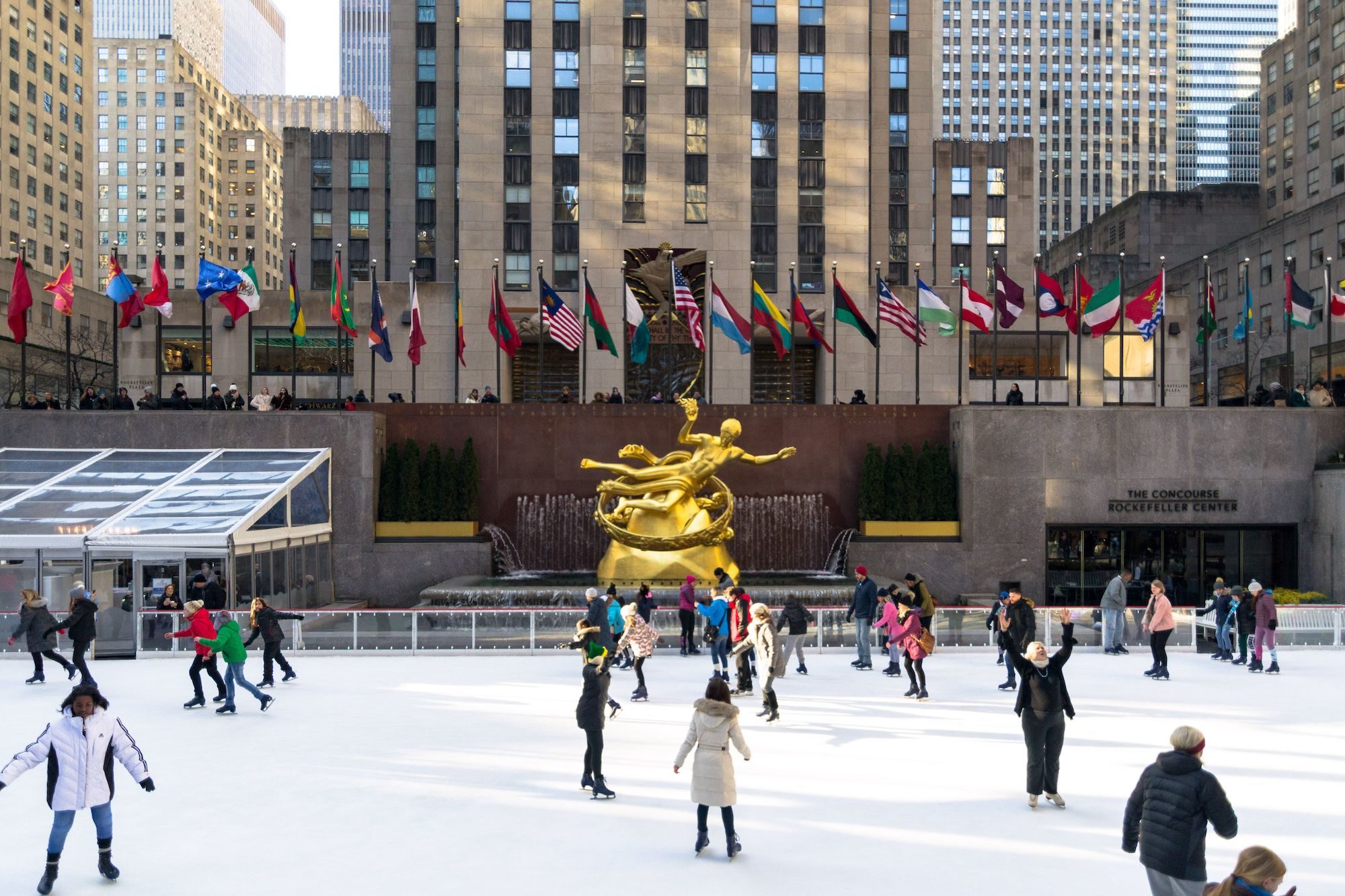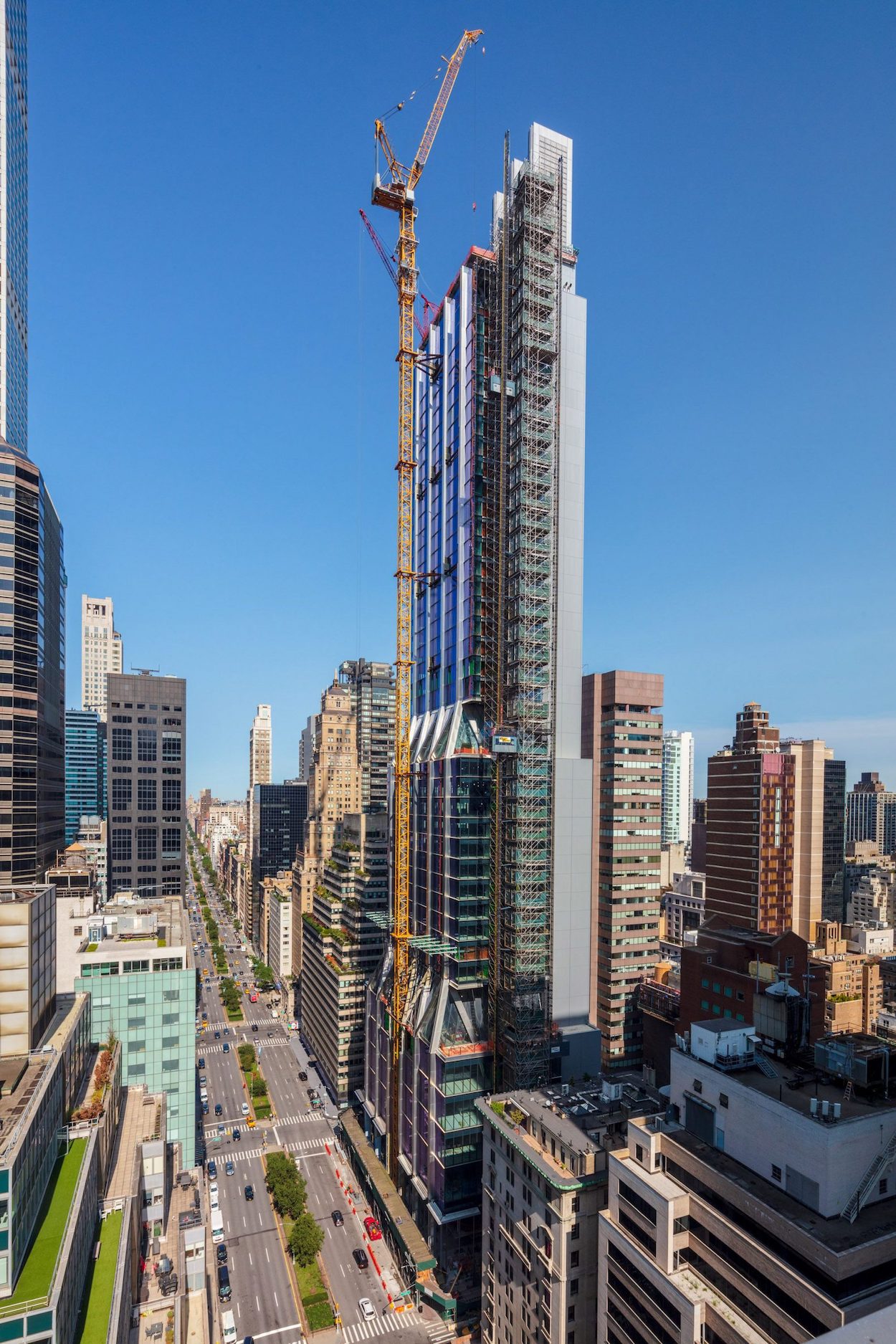The Design Dispatch offers expertly written and essential news from the design world crafted by our dedicated team. Think of it as your cheat sheet for the day in design delivered to your inbox before you’ve had your coffee. Subscribe now.
The Rink at Rockefeller Center will close early this season to prepare for a renovation.
Ice skating at Rockefeller Center has been a New York City tradition since the rink opened in 1936. If you want to enjoy the activity this year, act fast—it’ll only be open from Nov. 21–Jan. 17, closing several months early due to a long-planned renovation of the sunken plaza and its adjacent underground shopping concourse. While that may seem disappointing for cooped-up New Yorkers seeking outdoor activities during quarantine, Rockefeller Center owner Tishman Speyer promises long-term gains. “We want to make [the plaza] completely accessible to all people,” CEO Rob Speyer tells the New York Times, referencing a series of changes planned for Rockefeller Center’s central public areas. Spearheaded by Gabellini Sheppard Associates, the renovation will notably add pivoting storefront windows to the concourse to create optimal natural lighting and a seamless indoor-outdoor experience during warmer weather.
The delayed Philip Guston retrospective will open at the MFA in Boston in May 2022.
After news that a Philip Guston retrospective would be delayed until 2024 sparked backlash in the art world, the MFA in Boston has confirmed it will open the exhibition in May 2022. Three other major museums—the National Gallery in Washington, Tate Modern in London, and the Museum of Fine Arts, Houston—announced they were delaying the traveling retrospective because 24 of the Guston works prominently feature Ku Klux Klan members and needed to be better contextualized for the current political moment. Critics derided the move as self-censorship fueled by fear of controversy, but the museums defended their decision. “As we work to rethink the presentation of the exhibition,” MFA Boston director Matthiew Teitelbaum says, “we acknowledge that museums must meet and create our own moment of shared understanding and direct engagement with the voices of many—and we will.”
425 Park Avenue, a 41-floor office building by Foster + Partners, nears completion in New York.
425 Park Avenue, the first full-block office building on the storied New York avenue in more than five decades, is inching closer to completion. New photographs reveal that the 41-floor office tower, designed by the British firm Foster + Partners for developer L&L Holding, has its glass clad fully installed and is currently removing the exterior tower crane. When complete, the 850-foot-tall, WELL-certified building will feature Four Twenty Five, the first New York restaurant by celebrated Eleven Madison Park chef Daniel Humm in eight years. He’ll also manage The Diagrid Club, a tenant-only amenity floor that features wellness programming by the David Lynch Foundation and a permanent installation of Yayoi Kusama’s Narcissus Garden (1966). The tower’s temporary certificate of occupancy is expected for December.
Austin backs a $7 billion mass transit plan that will create light rail lines and bus routes.
Last week, Austin residents voted in favor of Proposition A, a property tax levy that provides the initial investment needed to launch Project Connect, a transformative infrastructure plan that will create three new light rail lines and four new rapid bus routes. That’s good news for commuters—the exceptionally fast-growing city has lately been struggling to find a solution to worsening traffic congestion. With Proposition A, valued at $7.1 billion, the city will accrue the necessary funds to address congestion, expand service for essential workers, reduce climate change emissions, decrease traffic fatalities, create jobs, and increase access to schools, healthcare, jobs, and the airport. Additionally, the plan includes building affordable housing investments along transit corridors and improving access for people with disabilities. “I’m just really proud to live in a city that’s looking forward to its future, one that’s saying emphatically that it won’t accept the status quo,” Austin mayor Steve Adler tells the Statesman.
The U.S. formally exits the Paris Climate Agreement, though Biden pledges to rejoin.
The Paris Agreement, written in 2015 and ratified the following year, pledges that all signing countries will work together to limit the effects of climate change. While it puts moral pressure on countries, it’s a non-binding agreement that doesn’t legally require action. President Trump was never a fan, immediately announcing his intention to make the U.S. the first country to withdraw from the agreement. Political entanglements have drawn out the exit process for years—it finally materialized during the fraught U.S. election process. Whether or not the withdrawal will influence other countries like Kuwait, Russia, and Saudi Arabia that also tend to deny climate science remains to be seen. President-elect Joe Biden, meanwhile, has pledged to reach net-zero greenhouse gas emissions by 2050 and immediately re-enter the U.S. into the agreement on his first day in office.
Today’s attractive distractions:
Scientists discover a bizarre “hell” planet where oceans are made of lava.
This Viking cruise ship is equipped with the first water-faring Covid-19 lab.
Looking at T Sakhi’s coffee tables feel like peering through a microscope.
Joe Biden’s design team reacted excitedly to his projected victory on Twitter.



